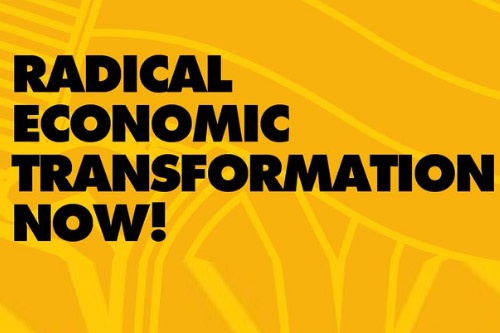Organic growth for free-range farmer. Jun 27 2017 14:53 Jon Pienaar www.fin24.com
If you buy free-range chicken from Woolworths, there’s a good chance you’ll be buying a bird that has been reared by Jeanne Groenewald, of Elgin Free Range Chickens, situated in Grabouw in the lush green Elgin valley.
Groenewald first started raising chickens in 1996 because she wanted to feed her family nutritious fowl that was truly free-range and completely free of antibiotics or growth promoters.
When friends and family tasted Groenewald’s chickens and learnt that the birds were drug-free, stress-free, and free of animal by-products, they wanted to buy more poultry.
Word got around, and by 2002 a state-of-the -art abattoir was set up in Grabouw. Seven years later, the farm was producing 48 000 chickens per week, and Groenewald was named the Top Producer for National Markets in the National Female Farmer of the Year Awards.
Today Elgin Free Range Chickens is the largest independent free-range-chicken operation in South Africa, producing over 100 000 birds per week.
What did you do prior to starting your own business?
I studied B.Sc Agric at Stellenbosch University, and then ran my father’s duck business for four years. I gained great experience in breeding, hatching and rearing poultry in a natural way with no antibiotics. I built an abattoir on the farm, created a brand and set up retail accounts for the duck products.
Where did the idea for starting a free-range chicken business come from?
In true entrepreneurial style, “it just happened”. I wanted tp produce chicken that was raised in an ethical and natural way, with no antibiotics or growth promoters, for my family. So I started with 100 chickens in my backyard. Friends tasted my chicken and said, “Please can you do 10 for me next time?” – and so the word spread. That was 20 years ago.
What Started as 100 chickens every eight weeks has grown into a business of 100 000 per week!
What motivated you to turn it into a business?
I didn’t really plan on turning it into a business – it just happened. People loved the product so much, I often ended up not having enough chicken for our own consumption. When I got to volumes of 2 000 chickens per week, a retailer asked me to supply them, so some serious investment had to be made.
This was probably the defining moment, of changing from a small backyard business into a more professional business. We went from 2 000 per week to 15 000 per week – nerve racking times indeed!
When did you officially start operating?
I bought my first chickens in 1996. In 2001 we built our own abattoir and started processing through it in 2002.
How did you get funding to make the growth happen? This will always be a start-up’s nightmare. I tried providing a full business plan for conventional banks, but frankly it was a waste of time. Eventually, two private equity funders who had faith in the business put money in, and then the banks lent me my portion.
How did you start supplying Woolworths?
After I made the big expansion jump in 2002, the retailer was unable to live up to its volume commitment. I needed to make a plan, and fast. I left a message for one of the Woolworths buyers, and the next day there were three company representatives wanting to inspect the farm.
Within two weeks we were packing chickens for Woolworths. I was so relieved when Woolworths said yes, and this has been amazing partnership for me.
What have been the three biggest difficulties you’ve had to overcome?
Learning to delegate – once I reached a production level where I started to employ managers. I was so used to doing everything myself, and doing it my way, that I couldn’t let go.
Once I did, however, it was amazing. Allowing other people with different skills to assist and provide more ideas gives a better end solution.
Another difficulty was learning to manage people. It is important to understand your employees, what their needs are and what would make them enjoy their workplace more. This is an ongoing learning exercise.
Finally, raising finance was a difficulty that’s now been overcome.
What is the biggest lesson you have learnt?
In my industry, which is sadly not regulated in SA, there are many copycats who most definitely do not comply with international free-range standards like we do.
They produce commercial birds and free-range birds, which means that animal welfare is not their passion at all, but rather an opportunity to make sales in all segments of the market.
I only produce free-range chickens as it is a moral decision of mine and my personal passion. I struggled with this and wanted to tell the consumers what was going on. I lost focus, and spent too much time trying to discredit the copycats.
But once I let them go and focused back on our business it all turned around. Our products speak for themselves and even if consumers move to the cheaper, inferior product, they soon become aware of the difference and come back to us.
A good lesson learnt as there will always be competition − and unethical ones too − so best just to keep doing what you do best.
How tough is competition in your sector?
Competition is a good thing as it keeps you on top of your game. The poultry industry as a whole has been through a very rough time in the last few years, which has been extremely challenging, more so than any competition.
What differentiates your product from others?
Our products have the best quality in terms of trim, meat quality and shelf life. We constantly monitor other products in the marketplace with benchmarking exercises against these criteria, and it is rather alarming to see how bad the quality of some chicken products really is.
How many people do you employ?
Nearly 500.
What is the best business advice you’ve ever received?
Have a finger on the pulse of your finances daily, weekly and monthly. Monitoring and trending is the best way to see a problem coming. It really is imperative, and makes running the company to budget so much easier.
Anything unexpected along the way?
We were buying day-old chicks from a hatchery that gave us two weeks’ notice. This was a rather stressful time, but one that happily took our company to the next level.
We built a hatchery and had our first chicks within four months. It was the best decision ever as we are now a fully integrated company and have secured our own supply of chicks, which guarantees production.
How do you stay motivated?
When your business is your passion, you just stay motivated. I thoroughly enjoy my job and have amazing employees, which makes working there even better.
What are your non-work habits that help you with your work/life balance?
I love mountain biking and also play squash.
Jeanne on community involvement
“One of my big passions is working with the employees and community. My business is situated in Grabouw, which has a very high unemployment rate, and bad drug and alcohol abuse problems. I invest a lot of time and money in trying to uplift my own employees as well as the community.
“We built a night school on our premises and offer our staff the opportunity to attain their matric certificates.
“We have employed a full-time school teacher and the department of education also supplies us with one. It gives me great pleasure to see the pride in the students, who never thought they would ever achieve a matric certificate, 20 years after leaving school, now realising that it is a possibility.
“I am also working with the community leaders, municipalities and local government on a number of community upliftment projects that specifically target school children and sports programmes. This is to keep them off the streets after school and away from drugs.
“I believe that businesses have a vital role to play in their own communities and social commitment. Besides that, our company has now become one that our staff are proud to be associated with, as we make a difference. That’s very rewarding.
This article originally appeared in the 22 June edition of finweek.




